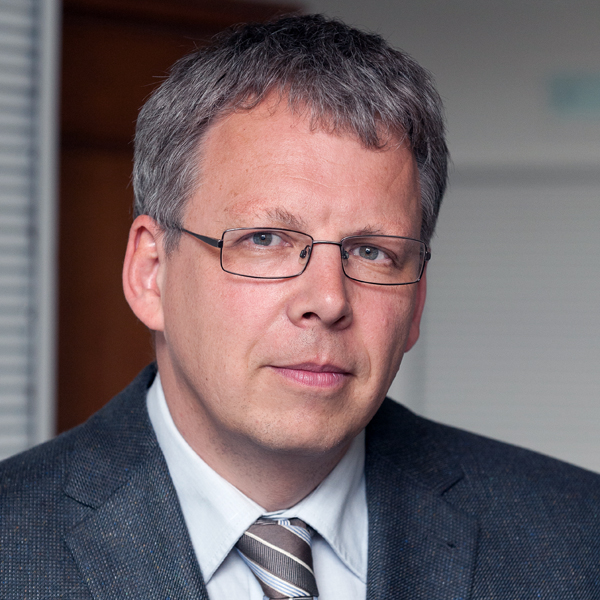Weisser, Bernhard
Director of the Berlin Münzkabinett
Bernhard Weisser (*1964) studied a combination of classical archaeology, ancient history and pre- and protohistory in Göttingen, Munich, Cologne and – thanks to an Erasmus-scholarship – Athens. In 1996, he got his doctorate in Munich with his doctoral thesis ‘Coin minting in the imperial times of Pergamum’. Bernhard Weisser continued to take part in archeological excavations after his studies at university, for instance going to Olympia, Pergamum, Miletus and Priene. He has been responsible for processing the coin finds of Priene since 2006.
Since 1996, Bernhard Weisser has worked at Berlin Münzkabinett, 1996-1999 as museum assistant (“Museumsassistent i. F.”), 1999-2003 as research associate. In that capacity, he was part of the organisation of the 12th International Numismatic Congress in Berlin and the publication of the Congress files. In 2003, he was made curator, in 2009 he became deputy director and head curator and in 2014, he was appointed director of the Münzkabinett der Staatlichen Museen zu Berlin.
He is responsible for the Münzkabinett’s antiquity coin collection (without the late antiquity), consisting of 152,000 pieces. Bernhard Weisser has been involved in many internal and external exhibits and also realises his own exhibition plans. On occasion of the permanent exhibition at the Bode-Museum, opened in 2006, he initiated the interactive catalogue of the Münzkabinett, which is the most comprehensive item a museum has to offer in the German-speaking area. He perceives the extension of the publications of the museum’s collections to be a core task for the Münzkabinett for the next years.
Bernhard Weisser is one of those scientists, who fearlessly interact between research and collector’s clubs. Between 1998 and 2011, he was the spokesman for the Berlin ‘Freundeskreis Antiker Münzen’. During his time, he integrated the workgroup into the Numismatische Gesellschaft zu Berlin. Since 2011, he is spokesman of the Berliner Medailleurkreis, works on the board of the Deutsche Gesellschaft für Medaillenkunst and is regularly called into the jury for the design of the commemorative coins. Since 2009, Bernhard Weisser is a representative of the state Berlin, member of the Numismatische Kommission der Länder and was elected into the International Numismatic Council in 2015.
After numerous lectureships, starting 1998, Bernhard Weisser has held an honorary professorship at the Winckelmann-Institut of the Humboldt University since 2009. In 2002, he spent a one-month research scholarship program at Oxford University via the Colin-Kraay-Scholarship and in 2007 he was visiting scholar at ANS.
Bernhard Weisser is specialised in ancient coins, especially those of Anatolia. But he has also published monographs and essays on modern medal minting. In collaboration with the Berlin-Brandenburg Academy of Sciences, he and Ulrike Peter are responsible for the project www.corpus-nummorum.eu, which publishes the ancient coins of Thrace, Moesia Inferior, Troad and Mysia.
Bernhard Weisser was given the Henry Grünthal medal in 2007 and the honorary award of the Gesellschaft für Internationale Geldgeschichte in 2013. In 2016, he received the Robinson scholarship of Oxford University.
You will find the complete curriculum vitae of Bernhard Weisser on academia.edu.
This is where he keeps you updated on his many publications.
He also has an entry on Wikipedia (in German).
CoinsWeekly reported on his appointment as director of the Münzkabinett der Staatlichen Museen zu Berlin.
If you are interested in German medals please come and visit the Deutsche Gesellschaft für Medaillenkunst and the Numismatische Gesellschaft zu Berlin mit ihrem Freundeskreis Antike Münzen.
Find out more about the excavation in Priene.
You can have a look at the coin finds of Priene here.
You can also find Bernhard Weisser on Twitter and Facebook.
Of course we must not forget the Online Catalogue of the Münzkabinett!
And last but not least, you can of couse also write Bernhard Weisser an e-mail.
If you want to know more about the history of the Berliner Münzkabinett, we can recommend the interview with Bernd Kluge in CoinsWeekly.
*as of 11 March 2020







